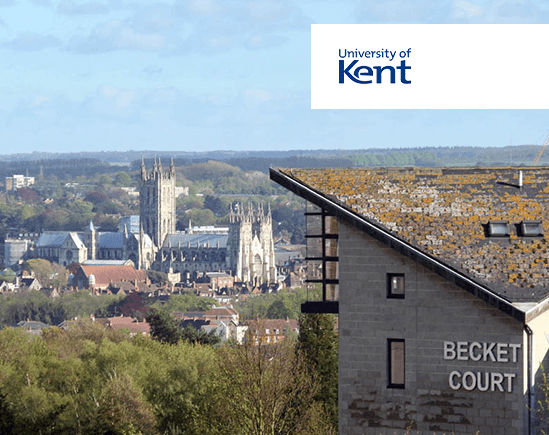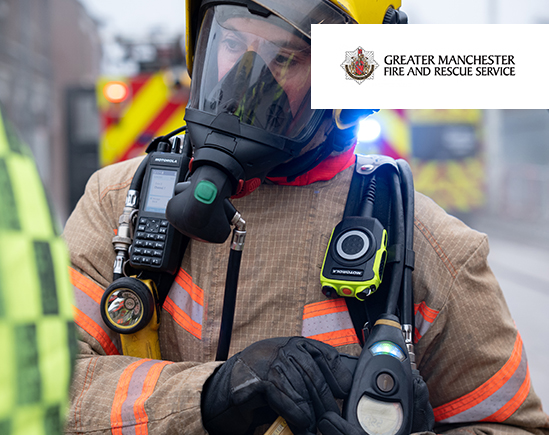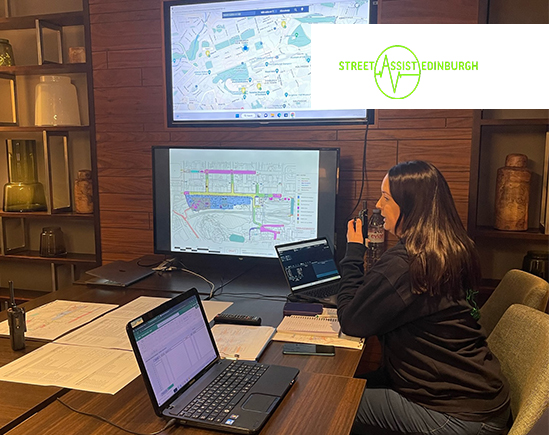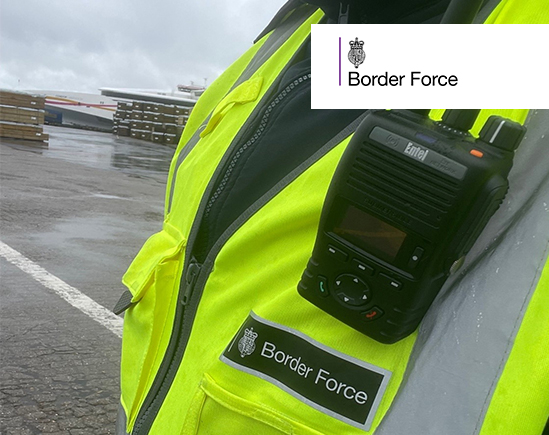Fragmented and unsupported radio systems.
The University of Kent was looking to upgrade its existing two-way radio infrastructure (predominantly a mixture of Motorola Solutions analogue and outdated digital systems) across both its main site at Canterbury and its Medway campus. Due to the historical independent purchasing by individual departments and teams, the previous radio system had been delivered by various suppliers and was fragmented and unsupported. The university also had to hire in extra radios on an ad hoc basis for events and conferences. Therefore, it was looking for the latest in digital technology to deliver unified communications for multiple users, with enhanced capacity, predominantly to drive effective and timely response in both day-to-day operations and during incidents or emergencies. Enhanced functionality, such as dispatch, voice recording and GPS location tracking, greater coverage, security and system resilience, as well as a comprehensive ongoing maintenance and support plan, were also all key factors.
The University of Kent approached experienced communications company and long-term Motorola Solutions partner Radiocoms Systems Ltd for a rapid system update, a significant driver being an upcoming major international conference; to be able to host that conference, the university needed a robust, reliable radio communications system in place, as part of its major incident plan. The initial scope of requirements and site survey were detailed and delivered in extremely short timeframes, whilst taking into consideration the infrastructure already in situ.
Paul Sinnock, Deputy Director Information Services, University of Kent, comments: “The survey is a perfect example of the positive, proactive collaboration we have enjoyed with Radiocoms. They didn’t just answer our specification queries – they came back with detailed considerations. It was really comprehensive. They went the extra mile – figuratively and literally – to ensure the new system would deliver the coverage and capacity we needed, including Canterbury Cathedral – for events such as graduation ceremonies – Canterbury High Street and Chatham Historic Dockyard.”
Connected with MOTOTRBO 24/7.
Radiocoms recommended a Motorola Solutions Capacity Plus Multi-Site system, incorporating TRBONet PLUS and TRBOnet Mobile Client, to meet the university’s needs and enable a fully connected system and unified communications between the two sites. Repeaters are based at two independent locations in Canterbury, to give full coverage and resilience, as well as at a further site at Medway; all have been installed with secondary power back-up. Central Operations teams are equipped with UHF DP4601e radios (with screen and small keypad), other teams – including security – use the DP4401e radios (no screen or keypad), and some operational and security managers use the TRBOnet Mobile Client application to connect into the radio network remotely from their smartphones, so they can stay abreast of situations, wherever they are. Teams and departments such as security, operations, technical services, estates grounds and maintenance teams, theatre, sports, night-time street teams and events communicate across 16 channels, and there are also 2 spare channels, as well as emergency and command channels, in case of major incidents. All channels have 40-bit enhanced privacy settings enabled. Usage has significantly increased, with thousands of calls being made over the network every month; security currently has the highest calling rates.
Dispatchers and operators work out of the 24/7 control rooms in Canterbury and Medway where the TRBOnet PLUS server and Radio Management software are virtually hosted. They utilise features such as voice dispatch, recording, GPS positioning and reporting and can also manage and monitor the radios, with over-the-air programming and batch firmware updates, for example. The university has a 5-Year Motorola Solutions maintenance contract, including enhanced warranty for the radios, as well as a managed services package from Radiocoms that includes predefined response times, remote and on-site support, and annual maintenance and system health checks. Radiocoms also manages the university’s licensing requirements and relevant contracts; and working with a sole supplier has helped to reduce overall licensing and hardware costs.
“This project, to deliver an integrated, reliable cross-site radio communications network, has successfully brought together multiple teams and departments across the university, to the benefit of all involved. We previously had disparate systems, which weren’t supported and were becoming outdated. Now, however, we have a unified system with multiple call groups, thanks to the capacity benefits of a trunked radio system. We’ve got seamless communications between our two main sites, whilst the system still offers the flexibility to meet the bespoke requirements of individual departments. The solution is delivering excellent coverage, encrypted communications and enhanced functionality, as well as greater safety for our workers; and it’s resilient, with back-up repeaters and power supplies. And obviously we are benefiting from having a sole supplier in Radiocoms, who are a very knowledgeable and proactive partner; they provide ongoing support and maintenance, so we know our system will be fully updated and functional at all times. That means we can rely on mission-critical communications whenever and wherever we need them.”
Mark Ellis, Director of University Operations, University of Kent.
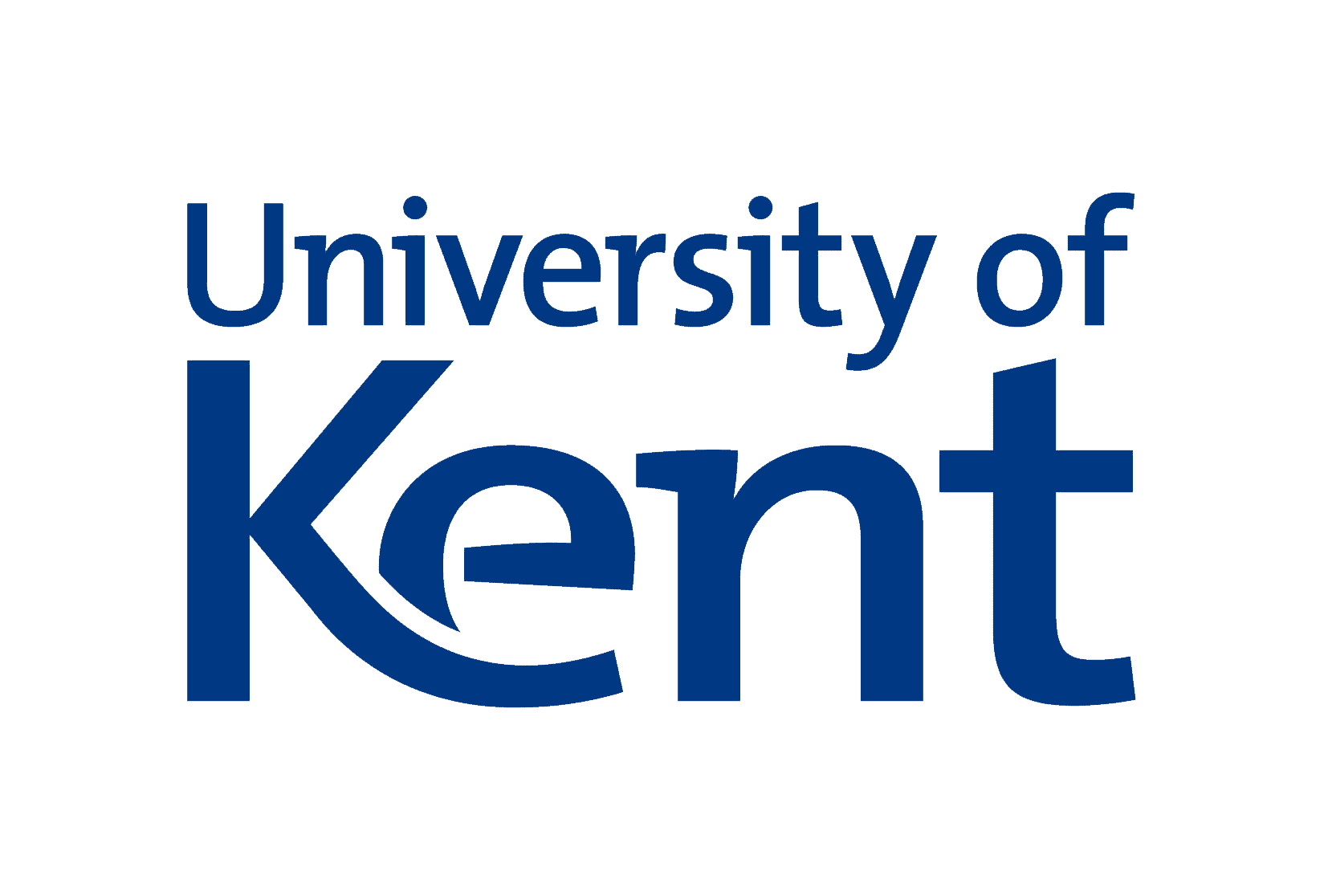
Resilient and future proof technology.
The University of Kent now has a fail-safe, unified system which will ensure departments can communicate effectively, between themselves and on a university-wide basis. This enables the sharing of timely information that, in turn, enhances people and property protection, from maintenance to graffiti to suspicious behaviour. The Radiocoms engineers are a PRINCE2® certified project management team and their experience shone through when they were designing the system, which has ensured coverage and audio quality are exceptional both on the campuses and in the required surrounding areas. Other benefits have also ensued, such as the greater protection of lone workers and, most importantly, the improved coordinated response management to incidents such as potential terrorist attacks, criminal activity, chemical spillages, gas leaks, road traffic incidents, medical incidents and missing students.
Mark Ellis summarises: “The events team recently used our new pool of radios to help successfully manage operations at ‘The Walk’, a travelling festival focusing on the needs of young refugees, when it came to Canterbury; and it’s great to see the Grounds team, who have wanted radios for a long time, now utilising the system too. So, I’m sure we will see the deployment expanding. Feedback has been very positive; communications are reliable, robust and encrypted and the system meets our incident response protocol requirements. So, there may well be future opportunities to investigate further usage of the network within Canterbury and expand the deployment and its capabilities.”
Indeed, following the success of this deployment, the university is currently looking at further technology from Motorola Solutions to be deployed by Radiocoms.
